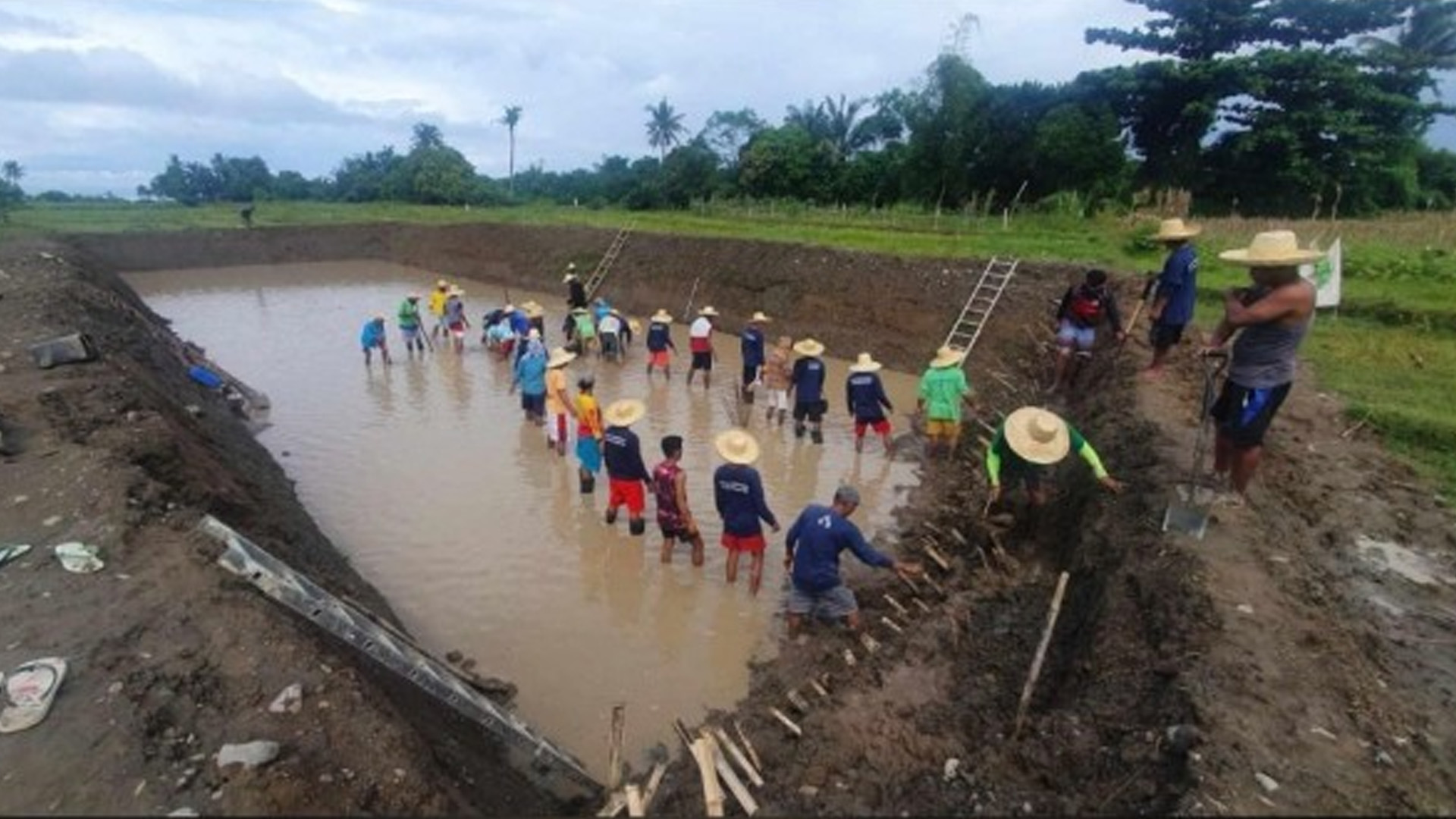The Department of Social Welfare and Development’s (DSWD) Project LAWA (Local Adaptation to Water Access) at BINHI (Breaking Insufficiency through Nutritious Harvest for the Impoverished) has helped over 137,654 beneficiaries from 310 localities across the country for this year alone.
In a message delivered by Disaster Response Management Group (DRMG) Undersecretary Diana Rose Cajipe at the opening ceremonies for the project’s national convention in Pasay City on Monday, DSWD Secretary Rex Gatchalian said the risk resiliency initiative continues to enhance the capabilities of Filipino communities through cash-for-work (CFW) and cash-for-training (CFT) modalities.
The national convention being held from Dec. 2 to 4 will serve as a platform to foster collaboration, knowledge sharing, and capacity building of Project LAWA at BINHI implementers at the local and national levels.
“Aligned with the United Nations’ Sustainable Goals, this [Project LAWA at BINHI] initiative envisions combating hunger and poverty, as well as responding to the call for climate action by ensuring water sufficiency and sustainable food security through innovative agricultural practices,” Gatchalian said.
Gatchalian’s message also highlighted the accomplishments of the project in 2024.
He said a total of 1,842 LAWA facilities were able to irrigate more than 7,234 hectares of agricultural land by providing a viable source of water to communities most affected by drought and climate change.
A total of 4,317 BINHI sites were also established this year, which were able to harvest over 21,014,574 kilos of produce that helped feed more than 810,756 families.
The Project LAWA and BINHI is a risk resiliency initiative of the DSWD that aims to build climate and disaster-resilient communities by assisting them in constructing water reservoirs to meet the challenges of the dry spell and the rainy season.
Ready-to-eat food
In the same event, the DSWD also launched its newest initiative to ensure food sources in disaster-affected areas –the ready-to-eat food (RTEF) packs.
The RTEF contains nutritious pre-cooked meals that will form part of the DSWD’s relief items, which will be distributed to affected families within the first 24 to 48 hours of the onset of a disaster.
The initiative hopes to fill the critical gap when traditional cooking facilities or utensils are limited or unavailable for the time being.
Each RTEF pack contains five cans of Department of Science and Technology (DOST) nutritionally-analyzed tuna paella, two cans of nutritionally-analyzed chicken pastil and giniling (ground), two packs of Industrial Technology Development Institute (DOST-ITDI) arroz caldo, three packs of champorado, two pieces of Food and Nutrition Research Institute (DOST-FNRI) high energy biscuit/cracker, and one piece of chocolate complementary food.
“I am confident that these projects reinforce the pillars of the Buong Bansa Handa program under the Marcos administration, thereby strengthening our nation’s disaster preparedness and response capabilities, and contributing to a Philippines that is better prepared to withstand and recover from disasters,” Gatchalian said.
Gatchalian underscored the significant role of local government units (LGUs) for the successful implementation of the RTEF and the Project LAWA at BINHI.
“We encourage local government units to maximize this opportunity to acquire knowledge, skills, and tools to adapt, innovate, collaborate proactively, and operate seamlessly for the successful implementation of both projects,” he said. (PNA)









